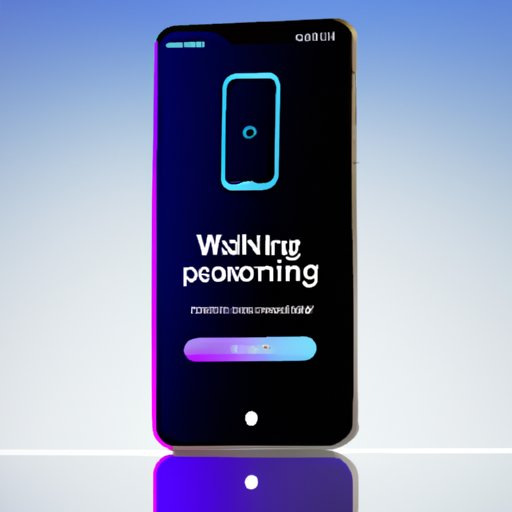
I. Introduction
Phone mirroring is a technology that allows someone to view the contents of your phone on a secondary device. While this can be useful for sharing content with friends or colleagues, it can also be used maliciously to gain access to confidential information. For this reason, it’s important to take the necessary steps to protect your phone from unauthorized access. This article will outline some tips and tricks to secure your phone from prying eyes.

II. What is Phone Mirroring and How It Works
Phone mirroring is a process that involves displaying the contents of one device on another device. This allows someone to view the screen of your phone on another device, such as a computer or tablet. Hackers can use phone mirroring to gain access to your phone and steal personal information or install malware. It’s important to understand how phone mirroring works so you can take steps to prevent it from being used against you.
III. Keep Your Phone Secure with a Strong Passcode
Having a strong passcode is one of the easiest ways to keep your phone secure. A strong passcode is one that is difficult to guess and contains a combination of letters, numbers, and symbols. It’s also important to avoid using common phrases or words that are easy to guess.
When creating a passcode, try to use at least 8-12 characters. You should also avoid using the same password for multiple accounts. Changing your passcode regularly can also help prevent unauthorized access.
IV. Turn Off Bluetooth and AirDrop When Not in Use
Bluetooth and AirDrop are convenient features that allow you to transfer files between devices. However, leaving these features on when they’re not in use can pose a security risk. Hackers can use Bluetooth or AirDrop to gain access to your phone and steal personal information.
Make sure to turn off Bluetooth and AirDrop when you’re not using them. If you need to transfer files, consider using an alternative method, such as email or a USB cable.
V. Use a GSM or LTE Network Instead of Wi-Fi
When you’re out and about, it’s tempting to connect to public Wi-Fi networks. However, doing so can put your phone at risk. Hackers can use public Wi-Fi networks to intercept data and gain access to your phone.
A GSM or LTE network is more secure than Wi-Fi. If you need to use your phone in a public place, use your phone’s cellular data instead of connecting to the Wi-Fi network.
VI. Disable Screen Mirroring on Your Phone
Screen mirroring can be useful for sharing content, but it can also be a security risk. Hackers can use screen mirroring to view the contents of your phone on another device.
To disable screen mirroring on your phone, go to settings and look for the display options. Different phones have different settings to disable screen mirroring, but it’s important to make sure it’s turned off to protect your phone from unauthorized access.
VII. Make Sure Your Phone is Protected with a Firewall
A firewall helps protect your phone from unauthorized access. It acts as a barrier between your phone and potential threats from the internet. Most modern phones come with a built-in firewall, but it’s important to make sure yours is turned on.
To check if your firewall is enabled, go to your phone’s settings and look under security or network options. You can also download a third-party firewall app from a trusted source to add an extra layer of protection.
VIII. Install a Trusted Security App on Your Phone
There are many security apps available that can help protect your phone from unauthorized access. These apps can scan your phone for malware, alert you to potential threats, and alert you if your phone’s security has been compromised.
When choosing a security app, make sure to choose one from a trusted source. Look for apps with good reviews and a high rating. Some recommended apps include Norton Mobile Security, Avast Mobile Security, and McAfee Mobile Security.
IX. Conclusion
Protecting your phone from unauthorized access is crucial in today’s digital age. By taking simple steps, such as creating a strong passcode, disabling screen mirroring, and turning off Bluetooth and AirDrop when not in use, you can help safeguard your personal information. Use a trusted security app and make sure your phone is protected with a firewall to add an extra layer of security. Don’t wait until it’s too late to take action.





